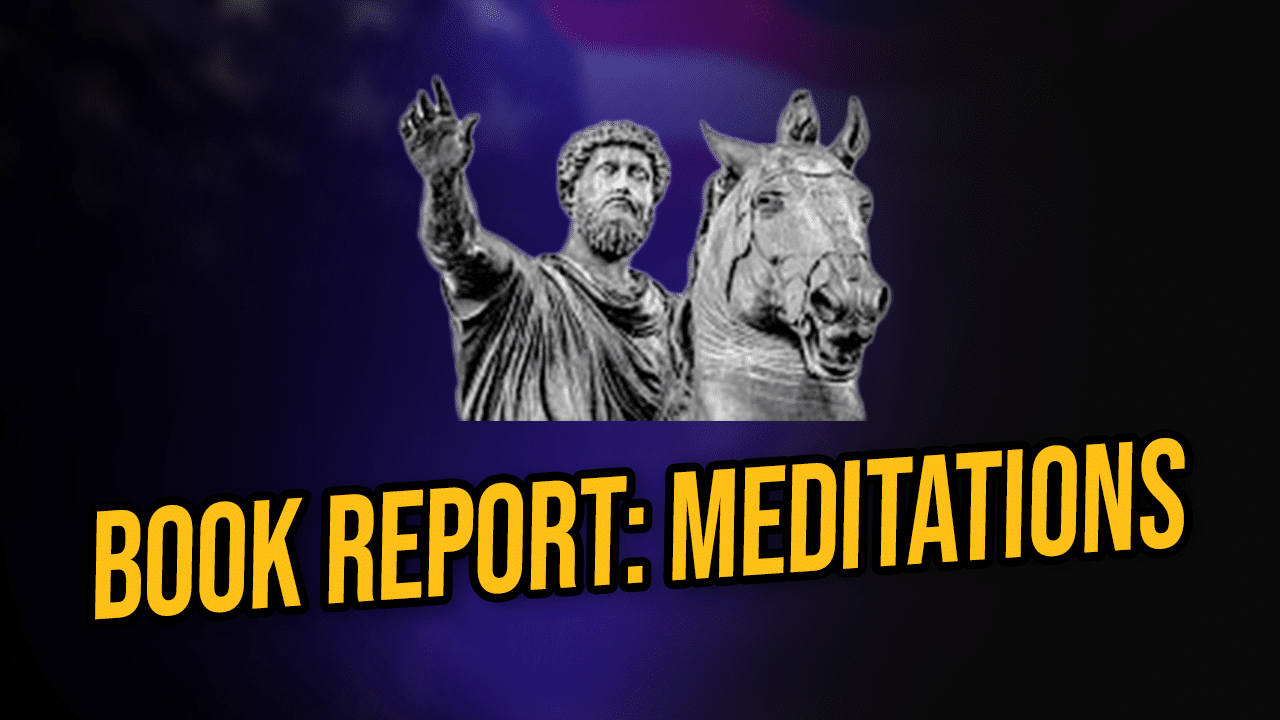
20 Sep Book Report: Marcus Aurelius – Meditations
I decided to dive in deeper and read the work of Marcus Aurelius, one of the main contributors to Stoic Philosophy. He was a Roman emperor who at one point was considered the most powerful and the most wise person in the world. It would really be something if we felt the same way about the most powerful leaders in the world right now…if they were imparting the masses with wisdom and insights on mindfulness, dealing with adversity, and being a better human all while solving national and international crises.
Marcus Aurelius did not think of himself as a philosopher, which is humbling. As I mentioned in my other book report, all of these words and concepts do not mean much without their practical application. He frequently speaks of himself as a student of philosophy, as someone who is practicing – because in reality, can anyone ever master these concepts? You are tested daily, even hourly, by life (especially here) and to achieve mastery would be impossible. The best we can do is try to stay the course.
In essence, his philosophy is a design for living, not something which we merely talk, write or banter about. Living in the present is a struggle at times, but it is a good way to get through time here. There are three disciplines the book frequently comes back to, and they guide your decision making process in any given moment:
-Can you accept this event (the present) with humility?
-Will you treat people as they should be treated?
-Approach your thoughts with care so as to avoid irrational thinking
While these ideas come up throughout his work, the book is a random mess of notes. It’s hard for me to speak so crassly of such a piece of work, but in my opinion, that’s what it is. I struggled with this thought as I was reading it but later came to learn that when documenting his musings Marcus Aurelius did not intend to write a book, and definitely not one which would be published. These were his personal thoughts, they have been translated from Greek, and we are merely reading his “diary” if you will. His intention is not to educate the reader; it is to write, to organize his thinking, and to reflect on how he can be a better person – something we can all benefit from. I’ve said it before but writing has been surprisingly helpful for me in terms of creating awareness of what I am thinking and how my thought process works, so I can relate to where he was coming from.
He reminds us that our minds will get us in trouble. They are irrational – whether leading us toward selfish desires, away from the present, or against the future and past. However, we have the power to stop this, or at least decrease the frequency and severity with which it occurs. A theme he consistently comes back to is that you have the power to use your mind to act rationally and accept what is beyond your control. For example, if you don’t make judgments about what happens, you aren’t as affected. Most things affect us only so much as how we react to them. Easy to say, hard to do, but good to have on your mind. The book is littered with ideas like this, but all of them fall under the umbrella of how we interpret and react to our daily life and surroundings.
I am still practicing and I will be for the rest of my life. It feels good and is a viable solution for keeping sane about my current predicament. This skill is going to be something I take home. This experience has taken a lot from me as well as those I care about, but all of that is in the past now. So as I try to rebuild I need to place a higher value on intangibles – things outside of projects that can be completed or possessions which can be acquired. Refining my mindset and the way I react to and reflect on life is truly invaluable, but it is a different kind of thing to possess – no one sees it, no one knows it’s there. It’s like a gift for yourself that helps keep life smooth, and in turn, better for those around you.
My writing is taking a similar format to his book. There is no chronological order for what I am working on, other than these are my thoughts as I work my way through the situation I’ve found myself in. One day I want to write about how you can make cheesecake in Prison, the next, the benefit of training your mind on how to recognize and disregard external factors you have no control over. Both of which I find to be very enjoyable.
If you take away a few key ideas from this book (or any book), practice them regularly, and find serenity in the mere act of reading someone’s writing, you will find it a worthwhile experience. In a way, it’s beautiful that his writing has no order to it – there’s a deeper meaning there.

